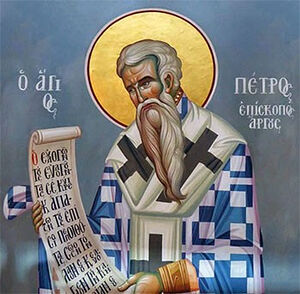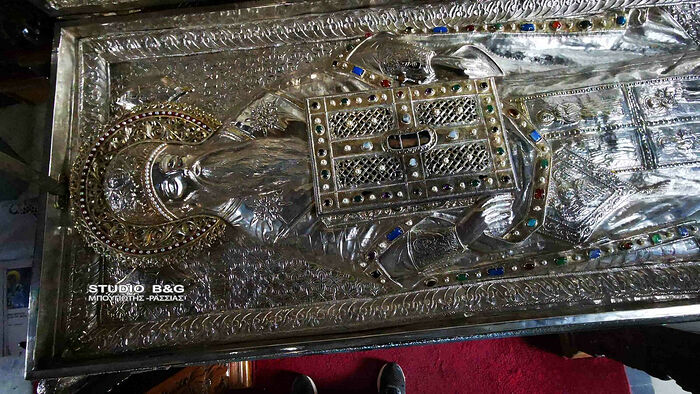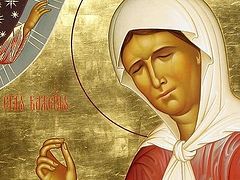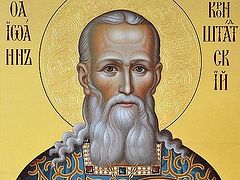Argos, Greece, October 1, 2021
A miracle has been occurring in the Cathedral of St. Peter the Wonderworker in Argos for several days now, the local priest and metropolitan attest.
There, the relics of St. Peter of Argos, the 10th-century holy hierarch to whom the cathedral is dedicated, placed in a special shrine in the center of the church, have been emitting a sweet fragrance throughout the day, reports Romfea.
The faithful have also noticed the fragrance. Having been informed of the phenomenon, Metropolitan Nektarios of Argolis visited the church and noticed that the scent was quite intense, after which he issued an announcement to the faithful on the site of the Metropolis of Argolis.
Though he reposed 11 centuries ago, St. Peter is speaking to the faithful today, Met. Nektarios says. “Our bishop St. Peter obviously wants to tell us something!” he exclaims, emphasizing that the fragrance is a manifestation of the grace of God that remains in the relics of the saints.
“Why does St. Peter now speak with fragrance?” the hierarch asks. “Obviously because we need it. Maybe because our faith is anemic and needs… a blood donation booster! Perhaps because the stench of injustice and indifference abounded in our lives and selfishness was extolled.”
Perhaps he is also calling apostates and lapsed Orthodox Christians back to the Church, Met. Nektarios continues.
But if the faithful don’t “listen” to what St. Peter is saying with his sweet fragrance, it will simply dissipate and be lost, the Metropolitan warns.
The hierarch concludes by quoting a prayer from Archimandrite Joel (Yannakopoulos) imploring the Lord to “heal our wounded souls.”
***
 matia.gr The life of St. Peter the Wonderworker of Argos:
matia.gr The life of St. Peter the Wonderworker of Argos:
St. Peter the Wonderworker, Bishop of Argos in the Peloponnesos, lived during the ninth and early tenth centuries, and was raised by pious parents. St. Peter’s parents, and later his brothers Paul, Dionysius, Platon and St. Peter himself, all became monks. St. Peter zealously devoted himself to monastic labors, and he excelled all his fellows. This came to the attention of the Italian bishop Nicholas (who from 895 was Patriarch of Constantinople), who wanted to elevate him to the rank of bishop. Saint Peter declined, accounting himself unworthy of such honor.
Bishop Nicholas consecrated Paul, St. Peter’s brother, as Bishop of Corinth, and St. Peter went to his brother and lived with him, taking upon himself the spiritual struggle of silence. After a year emissaries came to Bishop Paul from the city of Argos, where the bishop had died, and they asked for Saint Peter as their bishop. After long and intense entreaties, St. Peter finally gave his consent. As bishop, St. Peter toiled zealously in guiding his flock. He was extraordinarily compassionate, concerning himself with those in need, especially orphans and widows.
The saint fed the hungry in years of crop failure. Through his prayers the food set aside for the hungry never ran out. The saint also ransomed captives, healed the sick and the afflicted, and possessed the gift of insight. The saint predicted the day of his death, and departed to the Lord at the age of seventy. His relics were transferred from Argos to Nauplos in 1421, exuding myrrh, and working miracles and healings.
Follow us on Facebook, Twitter, Vkontakte, Telegram, WhatsApp, MeWe, and Gab!




